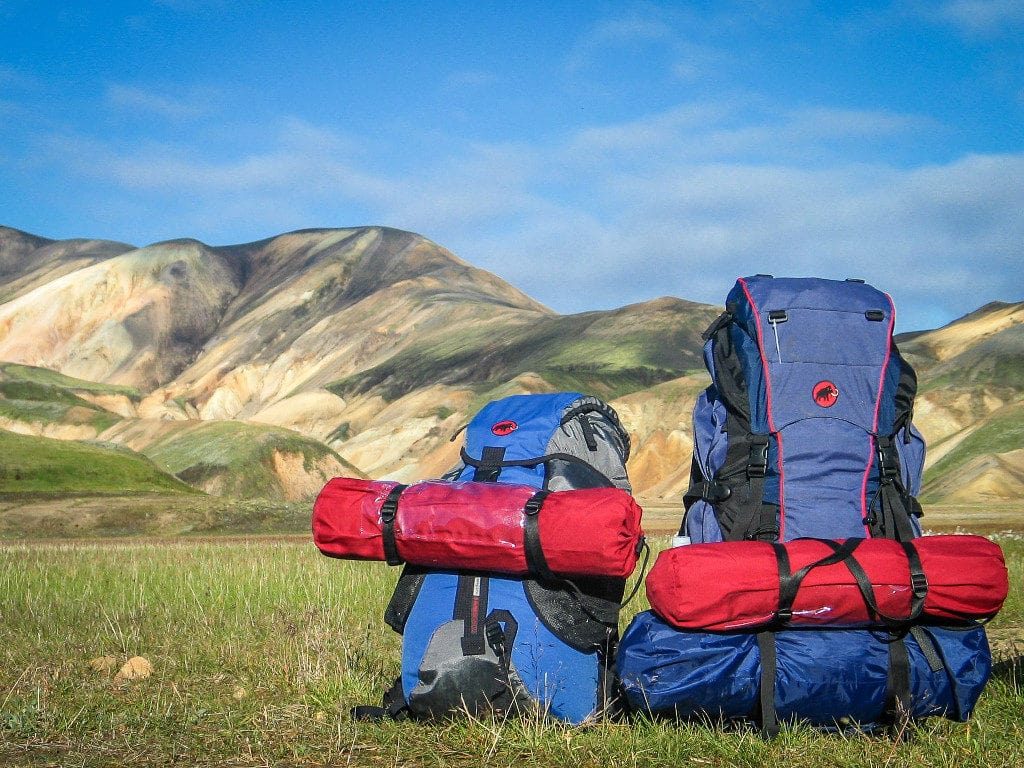Overall, most outdoor adventurers carry everything they need on their back which makes the task of organizing the inventory important. If you put too many things into your backpack, your stamina is going to suffer. On the other hand, if you remove critical items to lighten the backpack, you may run into significant troubles later. As a result, many people have a hard time determining the bulk of the backpack. So how much should a backpack weigh on average anyway? What factors often affect it? Is it possible to reduce the weight of the backpack?
Have similar questions in mind? If that is so, this article got something for you. Take a good look at the following information in order to determine the ideal backpack weight for your next trips.
Contents
Using The Body As Guideline

Generally speaking, people must keep in mind two rules of thumb while packing backpack for backpacking as well as hiking. In the normal cases, these rules offer the best answer to the question of “how much should a backpack weigh”.
- For backpacking trips, the weight of the backpack should not exceed 20% of the body weight
- For hiking trips, the weight of the backpack should not exceed 10% of the body weight
Here is an example: Assuming you weigh around 150 pounds, the recommended backpack weight for backpacking in your case is 30 pounds. If you are packing for hiking, you have to keep the loaded weight of your backpack from going over 15 pounds. As long as you follow the percentage rules, you would be able to maintain a manageable weight on your back. Obviously, you could comfortably enjoy your outdoor experience if you don’t have to drag yourself forward with every step.
That being said, it’s worth noting that there are a lot of other things that decide the average backpack weight for hiking and backpacking. On occasions, breaking the backpack weight limit is simply unavoidable.
Influential Aspects Of The Trips
Overall, different people have different ideas about how much should a backpack weigh including what dictate it on the field. Still, if you are new to outdoor activities, consider the factors down below while packing.
- The Duration Of The Trip: Needless to say, it’s impossible for humans to stay in shape without eating, drinking,… As a result, the longer the trip, the more food, water, fuel and necessities you need to carry with you. For most of the time, it’s widely advised that you follow the percentage rules here so be thoughtful about other items in the backpack. Depending on the circumstances, you may have to leave certain things behind in order to make room for vital supplies.
- The Weather On The Field: Generally speaking, the way that weather affects the weight of your backpack is quite straightforward. As the temperature drops, you need to bring along thick clothes to keep yourself warm. In rainy reason, it’s necessary to pack raincoats in case you got caught in a downpour in the outdoors. Therefore, it’s a good idea to check out weather forecasts before leaving to make sure that you are ready.
- The Personal Preferences Of Individuals: Some people treat comfort as a top priority which makes them endure the hassle of hauling hammock, sleeping bags, extra clothes and alike while traveling. At the same time, others have no issue wearing one set of clothes for days and sleeping on lightweight pads.
How to Reduce The Loaded Weight Of The Backpack

After learning about how much should a backpack weigh, many people want to know if it’s possible to keep the backpack weight manageable but still have everything they need. Fortunately, there are a couple of ways for you to reduce the weight of your backpack without sacrificing critical items.
- Get New Tools And Gears: Sure, you may feel content with what you have on hand at the moment but remember that new products hit the market virtually every year. In many cases, the latest models tend to be much lighter than their predecessor which saves a lot of weight. Therefore, it’s strongly recommended that you search through the market periodically to see if there are weight-saving options.
- Always Place The Meals Carefully: Overall, shoving random foods right to the backpack is a certain way to overload it. Hence, take a few moments to devise a proper menu on the road by writing down all the available options. Usually, a person needs to consume 1.5 to 2.5 pounds worth of food per day (around 2,500 – 4,500 calories). Of course, the weight of food could change depending on the level of physical exertion.
- Take Care Of The Packaging: The packaging rarely gives you troubles in your daily life but in the outdoors, they add considerable weight to the backpack and take precious rooms. Because of that, it’s essential that you remove the packaging of items you intend to pack then redistribute the contents to more compact containers.
Last Updated on July 17, 2019






